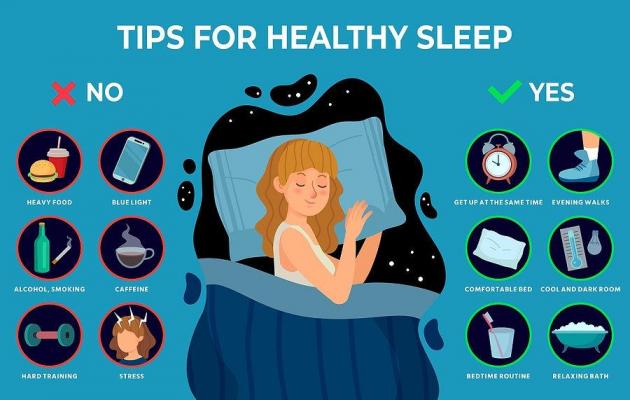Sleep hygiene refers to various practices and habits that enable you to have the best nights sleep. Practising good sleep hygiene is crucial for both your physical and mental health. Too little, or even too much sleep, as well as various factors surrounding your daily routine, can have a huge impact on your general quality of life.

Signs ans symptoms of sleep deprivation
Sleep deprivation is a failure to get a sufficient amount of good quality sleep. Some of the signs and symptoms include:
- Increased appetite
- Yawning
- Visual disturbances
- Reduced perception
- Lack of concentration
- Increased aggression
On average the NHS recommends that adults should get between 6-9 hours of sleep every night
What if you are sleeping more than the recommenced hours every day? The balance between getting too much or too little sleep is vital in ensuring you live a healthy life. Similar to sleep deprivation, studies have shown sleeping too much can also be damaging to health. Regularly sleeping more than 10 hours a day can increase your risk of developing:
- High cholesterol
- Heart disease
- High blood pressure
- Stroke
- Diabetes
- Obesity
Factors that could affect your sleep
- Stress – is one of the causes and consequences of sleep deprivation. Reduced amounts of sleep will cause the body to release more stress hormones. Therefore, in turn, not only will this impact your health, but it many also cause a further reduction in sleep, creating a vicious cycle.
- Electronics – screens produce blue light which can disrupt your sleep cycle as it can cause the brain to suppress production of melatonin, making it harder for people to “turn off” their brains and fall asleep.
- Alcohol – The more you drink and the closer your drinking is to bedtime, the more negatively it will impact your sleep.
- Smoking- Dependence on nicotine can cause craving during the night, disrupting and depriving you of valuable sleep. Research has shown that smokers are 4x more likely as non-smokers to report feeling unrested after a nights sleep.

